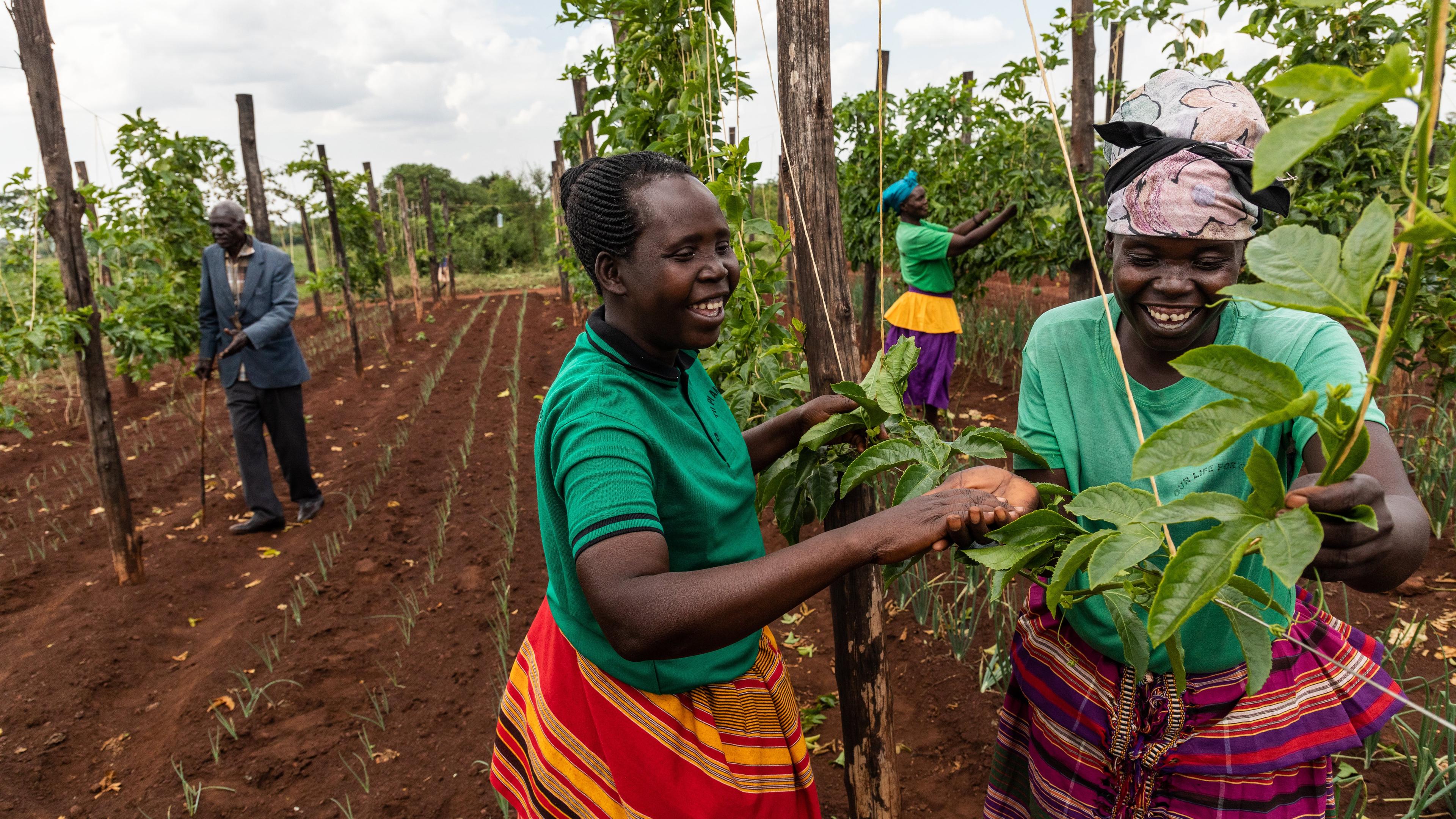Achieving self-reliance of refugees through economic integration into agro-processing value chains
 © FAO
© FAOWhat is the challenge?
Much of the population living in the refugee hosting district of Kiryandongo in Uganda rely on subsistence agriculture to meet their daily food consumption and income needs, while the refugee population is dependent on cash relief and food rations. Vulnerability of the local population to food and nutrition insecurity, particularly refugees, has been further exacerbated by significant reductions in food rations and cash assistance within the humanitarian response and increased food prices caused by war and conflict in Ukraine.
What is innovative about the project?
FAO will partner with Agricycle Uganda, whose core business strategy is on upcycling of would-be wasted fruits, vegetables and other food items into food-grade products especially during peak production times and providing markets for value-added products. Their business model will provide financing options to refugee and host community households to access affordable and easy to operate agro-processing technologies, capacity building on food safety and quality control standards when handling food products, packaging and access to Agricycle’s already established markets for added-value products.
Agricycle’s finance model will subsidise the partial cost of the agro-processing technology and provide various favourable and mutually agreed repayment plans involving monthly instalments or deductions when beneficiaries supply the added-value products to the aggregation centres.
Affected people will be trained on processing, food safety and quality assurance knowledge and skills, and receive continuous quality assurance supervision during processing operations. All value-added products are aggregated and packaged under private labels for the local and export markets. The beneficiaries are paid directly for their offtake products, at a rate up to 5 times what they would have earned from local markets.
Agricycle maximises profitability by combining transportation, processing sites, and by-products of multiple global brands into one seamless vertically integrated supply chain that is revenue-generating and creates employment opportunities at every stage. The financing options coupled with the training program facilitate the repayment of the technology in a period between 4 months to a year.
What are the expected outcomes?
By increasing knowledge and capacity among refugees and host communities to engage in market oriented sustainable agricultural production and agribusiness and building profitable and sustainable agro-processing value chains and market linkages, the project will support refugees and host communities to achieve greater resilience and self-reliance.
Agricycle has successfully implemented its model in different regions of Uganda since 2020. With support of FAO, Agricycle will scale up its model to Kiryandongo refugee hosting district and provide evidence that a market-based approach, in-line with its business model, can engage and deliver enhanced income generation for refugees and low-income host community households.
Who are the project partners?
This project is led by FAO in collaboration with Agricycle Uganda.